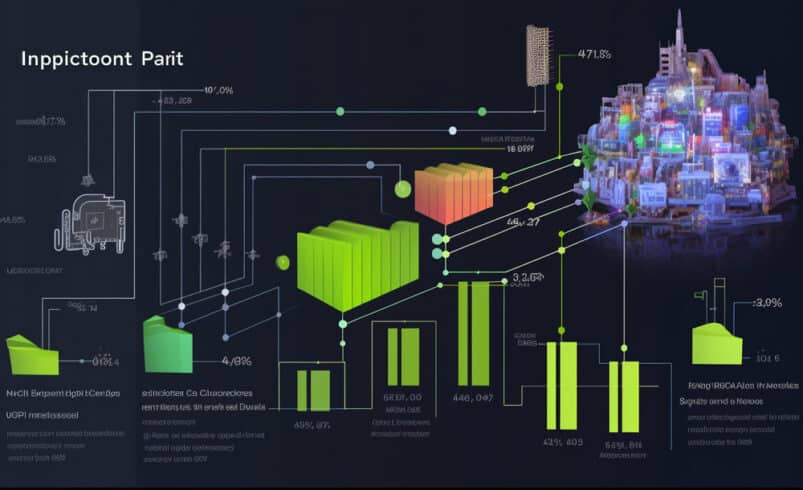Trading BTC On Exchanges Or Bitcoin ETFs? Which Is More Profitable

Table of Contents
As the pioneer digital asset, Bitcoin has become significant in the global financial landscape. With its rising popularity, investors now have multiple avenues to participate in Bitcoin trading, including the recently introduced exchange-traded funds (ETFs).
This guide delves into the disparities in these two techniques, exploring their benefits and drawbacks.
Understanding ETFs
An ETF is an investment fund traded on stock exchanges, similar to stocks. ETFs comprise a collection of assets such as commodities, stocks, or bonds and can track an underlying sector, index, or specific investment strategy.
Bitcoin exchange-traded funds (ETFs) hold Bitcoin as their underlying asset. This lets investors get exposure to Bitcoin without actually having it.
Understanding Spot Bitcoin ETFs
Spot Bitcoin ETFs hold significant importance for many reasons, chiefly the legitimacy they bring to the cryptocurrency asset class. Historically, central banks, regulators, and mainstream capital market participants have viewed this asset class skeptically.
However, the approval of the Bitcoin ETF caused a change in their sentiment. For instance, within the first two days of Bitcoin ETF trading, BlackRock had attracted inflows of more than 10,000 BTC. This surge in interest can be attributed to several advantages that ETFs offer, including regulated operations and portfolio diversification.
Trading Bitcoin On Cryptocurrency Exchanges Vs. Bitcoin ETFs
Trading Bitcoin on crypto platforms and Bitcoin ETFs are two different ways of investing in this asset, but each has its benefits and drawbacks. When users use an exchange to trade Bitcoin, they buy and sell the digital currency directly, exposing them to its price changes.
They still own their Bitcoin and can keep it in a digital wallet or with the exchange. In contrast, investing in Bitcoin ETFs entails buying shares in an ETF that tracks the price of Bitcoin either directly (spot ETF) or through futures (futures ETF) contracts.
Spot Bitcoin ETFs are important for many reasons. For instance, their activities are regulated, giving institutional investors and other traditional financial players peace of mind regarding their investments. Moreover, Bitcoin ETFs make investing easier for more people, even those who might not know how to trade on a crypto market.
Additionally, Bitcoin ETFs can help buyers diversify their portfolios since they can hold both Bitcoin and traditional assets in a single ETF. This might appeal to people new to cryptocurrencies or who haven’t traded digital assets much. However, when investors trade Bitcoin on crypto exchanges, they have more power over their assets and can use a broader range of trading strategies to increase their BTC holdings.
Proven Strategies For Trading Bitcoin ETFs
When trading Bitcoin ETFs, investors have various strategies they can utilize. One common approach is dollar-cost averaging (DCA), where investors regularly invest a fixed sum of money. This method helps cushion the effects of market volatility and often leads to lower average purchase prices over time.
Another strategy is sector rotation, which involves adjusting investment portfolios between different sectors or asset classes according to prevailing market conditions. For instance, if an investor anticipates growth in the cryptocurrency market, they might boost their investment in Bitcoin ETFs while decreasing exposure to other sectors like real estate.
Diversification is also an important strategy when trading Bitcoin ETFs. By combining Bitcoin exposure with traditional assets in a single ETF holding, investors can spread risk and improve returns. Moreover, options contracts linked to Bitcoin ETFs provide opportunities for implementing sophisticated hedging tactics to control risk and benefit from market fluctuations.
Risk Management In Bitcoin ETFs Vs. Exchanges
Regarding managing risks, Bitcoin ETFs and exchanges have some notable differences. Bitcoin ETFs are run by professionals and adhere to strict regulations, which can reduce the chances of fraud or mismanagement.
On the other hand, when trading on exchanges, investors may face counterparty risks as they rely on the security and integrity of the platform. Additionally, Bitcoin ETFs typically hold assets in secure custody, often insured against theft or loss, offering an added layer of protection.
This method contrasts exchanges where investors are responsible for securing their digital assets, a process that can be complex and risky. Moreover, Bitcoin ETFs operate within mainstream capital markets, which can help mitigate the risk of market manipulation.
Conversely, the crypto market, where exchanges operate, is known for its volatility and susceptibility to manipulation, posing higher investor risks. Therefore, for those who prefer adequate risk management, Bitcoin ETFs offer particular advantages over trading on exchanges.
Ending Thoughts
Investors can choose either option to profit from BTC investments. However, their choice will depend on their risk management appetite and expertise in crypto trading.
Time Crypto Market offers content visibility for dozens of crypto enterprises, and you can be a part of our network! Reach out to us on our telegram chat for inquiries. The nature of cryptocurrencies is highly unpredictable; always perform your due diligence before any investment. Several articles on our site come from guest contributors or are commissioned pieces, not originating from Time Crypto Market's in-house writers. The perspectives shared in these articles might not necessarily align with those of Time Crypto Market. We do not assume responsibility for the veracity, caliber, promotions, offerings, or any other elements presented on our platform. Consult our comprehensive terms of service and disclaimer for more details.








